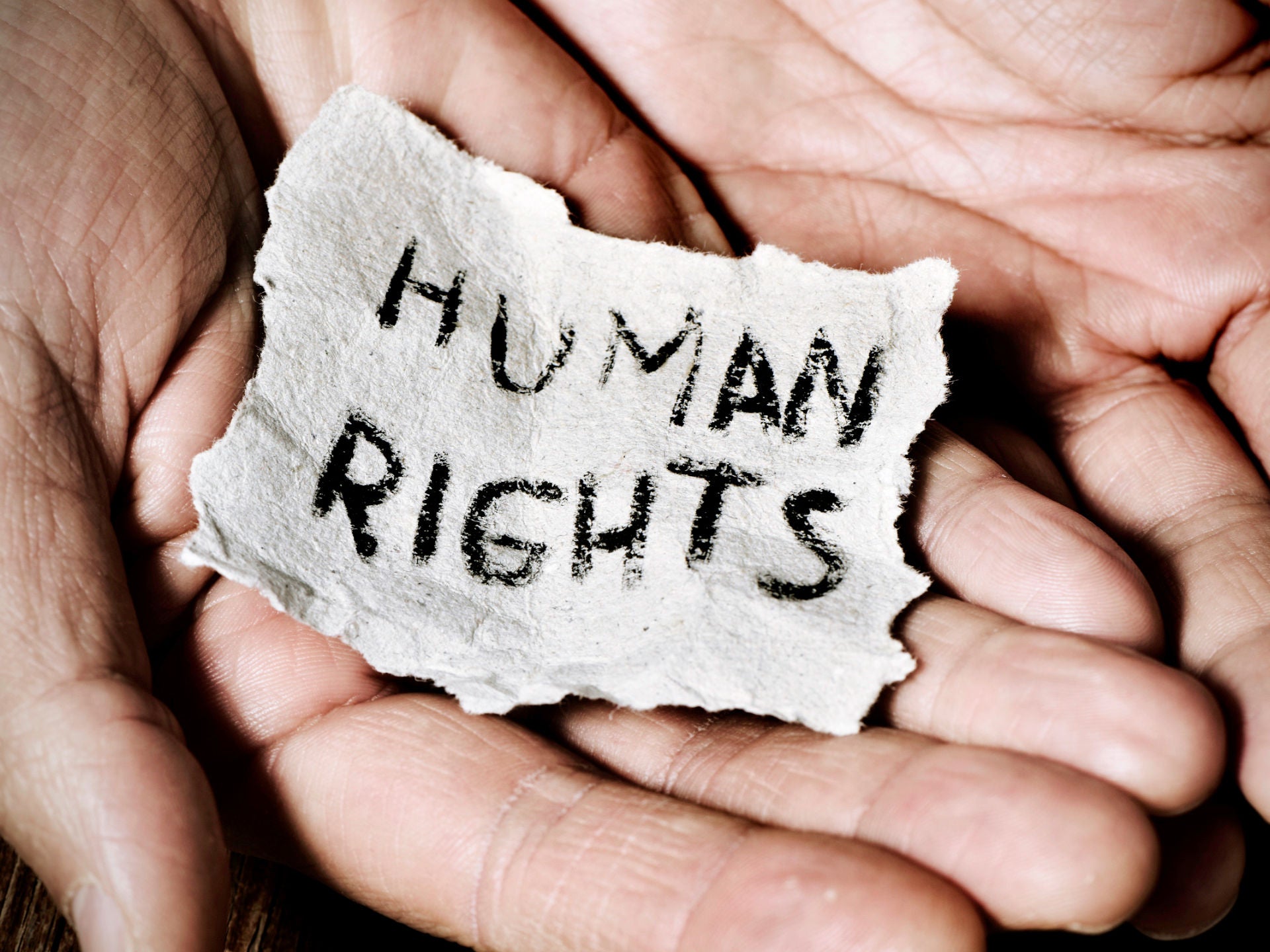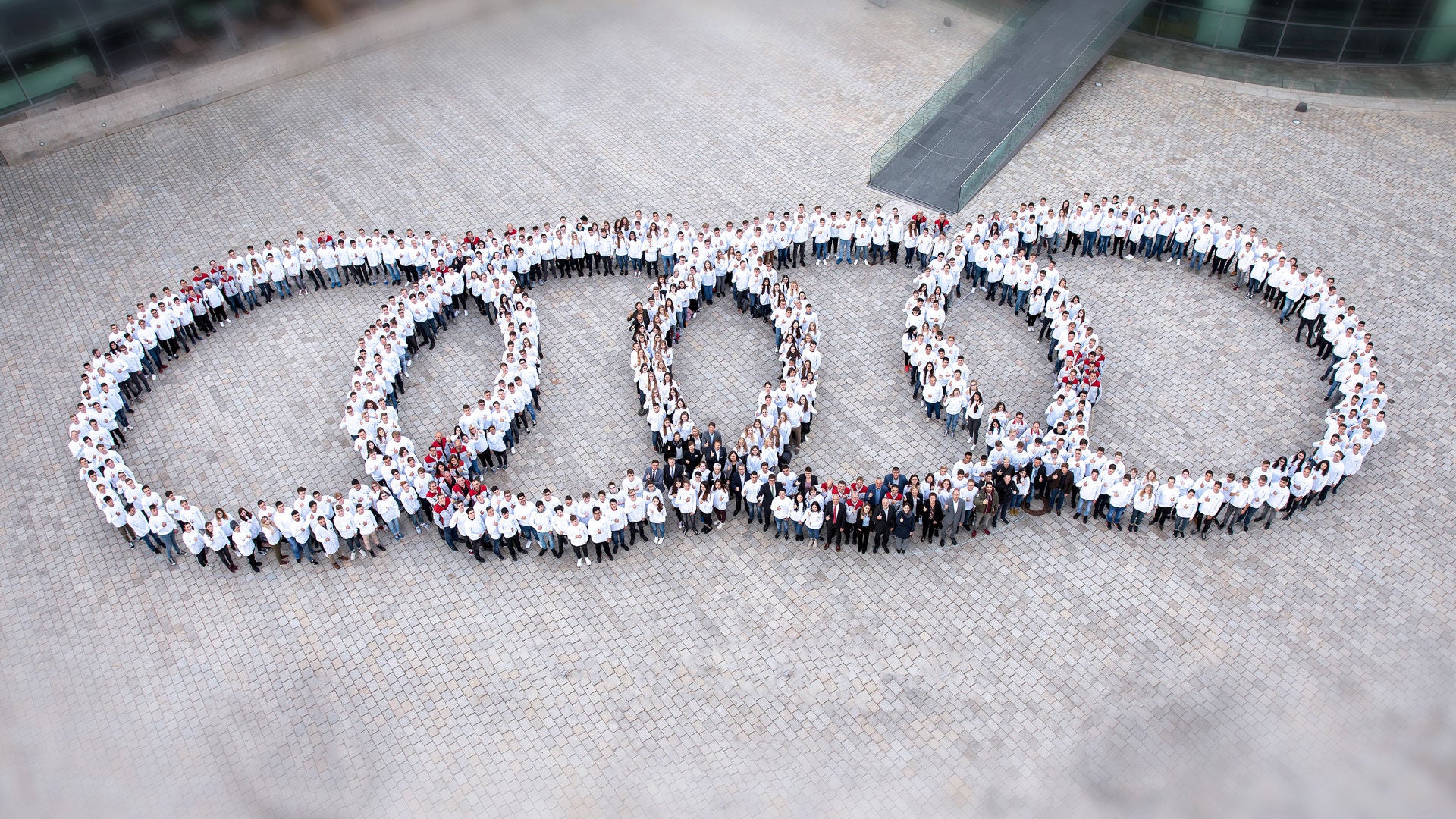Everyone has rights
missing translation: fa.article-intro.reading-time – 05/16/2025

“Audi has more than 40 organizations worldwide, with more than 88,000 employees and tens of thousands of business partners – so the company bears extremely great responsibility.
Jasmin Lotze, Compliance Consultant for Business and Human Rights
Consistent respect for human rights is in keeping with the Audi self-image. It is therefore amongst other embedded in the Audi Code of Conduct, which is binding for all Audi employees. Standing up for these rights is a duty. “Our goal is to take respect for human rights into account in all processes. Our Compliance Management System (CMS) helps us implement this systematically”, says Jasmin Lotze. Audi manages the issue of human rights from within the Compliance department – with many interfaces throughout the entire company. Important components of the Compliance Management System include creating and facilitating a compliance and integrity culture, risk analyses and raising awareness among employees and partners through training.
Prioritizing according to risks
“In fact, the term ‘human rights’ covers a wide range of issues, including the right to health and safety at work, the right not to be discriminated against and, naturally, the prohibition of child and forced labor as well,” says Jasmin Lotze.
The globally operating automotive industry is considered a high-risk industry with respect to human rights. Audi is therefore actively involved in the “Automotive industry dialogue on respect for human rights in global supply and value chains” as part of the German government’s National Action Plan for Business and Human Rights (NAP) – together with representatives from science, politics and civil society. Audi therefore not only sets high standards internally but also endeavors to uphold our values and principles along the value chain as well.
Living a shared value system
Audi stands for “Vorsprung durch Technik.” The company’s aim is to be a pioneer in social issues as well. In other words, to act sustainably, to influence, to change things for the better, and to live diligence. In the age of globalization and an increasingly complex supply chain, the company influences the working conditions of employees worldwide. Sarah Schwellinger, who is responsible for sustainability in the supply chain at Audi, places: “We usually have indirect influence – sometimes even direct influence – on all people involved in the supply chain, their work, lives and families. We want to handle this responsibly and leave behind a positive impact.”
The challenges in the supply chain are great: More than 12,400 direct suppliers from more than 60 countries around the world must be integrated and managed within a shared value system. The Code of Conduct for business partners of the Volkswagen Group summarizes the expectations we place on our partners in the process.

Sarah Schwellinger, responsible for sustainability in the supply chain at Audi
Holistic sustainability as a guiding principle
The central instrument for checking these expectations is the “Sustainability Rating” (S-Rating) introduced in 2017; this has been mandatory throughout the Volkswagen Group since 2019. It examines the sustainability behavior of direct business partners in the supply chain with regard to human rights, occupational safety and environmental protection risks. Companies must develop official guidelines, embed them within the company and communicate them to employees. Some of these processes also need to be externally certified. If a companies falls through the rating grid, it has the opportunity to optimize its standards within a defined period of time.
If, for example, an on-site audit reveals that no precautions have been taken in fire protection, that fire extinguishers were defective or incorrectly installed, or that escape routes are blocked, this leads to a negative rating. “This is no small matter – it endangers people’s lives in an emergency,” says Sarah Schwellinger. Sources of danger like these must be eliminated immediately. Appropriate documentation of this must be provided. If these shortcomings cannot be rectified, Audi can terminate its cooperation with the supplier. “It is not just a matter of revealing problems but also of solving them together,” she clarifies.

Jasmin Lotze, Compliance Consultant for Business and Human Rights.
“It is important that those who are affected or their representatives are also present in these initiatives.
Sarah Schwellinger, sustainability in the supply chain at Audi
Tackling shortcomings together
Systematically integrating human rights into the supply chain requires strong alliances and cooperation with other companies, civil society and rights holders.
This is why Audi is a member of the Global Battery Alliance, which is concerned with protecting human rights in the mining of battery raw materials. After all, the automotive industry is dependent worldwide on raw materials such as bauxite, lithium or copper, which are mined in regions with weak government regulation, among other things. In a network of renowned companies, solutions are developed and measures are adopted that can only be jointly implemented. “It is important that those who are affected or their representatives are also present in these initiatives,” explains Sarah Schwellinger. “It is only in this way that we can involve those people whose rights are affected by our activities in our processes.” Audi is also part of the Aluminium Stewardship Initiative (ASI). Here as well, the members ensure, among other things, that human rights are respected along the value chains. “At ASI, representatives of indigenous peoples are an integral part of the organizational structure. But communication with trade union representatives also plays an important role,” tells us Sarah Schwellinger.
Risks and indications of potential violations
Despite extensive guidelines and control measures, risks or violations of human rights or environmental standards can arise in complex supply chains. "We can't monitor everything. For this reason, it's important to us to remain open to potential problems in our supply chains," adds Sarah Schwellinger. Indications of potential violations of the Code of Conduct for Business Partners can be reported via the Audi Whistleblower System – this option is open to anyone and can also be done anonymously. "Together with a team of experts, we then search for appropriate measures and solutions on a case-by-case basis."
Jasmin Lotze is well aware that all these measures to respect human rights within the context of corporate responsibility require long-term and relentless commitment: “As a globally active company, we must of course ensure that we design processes in our own sphere of activity in such a way that they are in line with international conventions for the protection of human rights. Ultimately, it is a matter of putting the focus on the human being and on respecting their rights.”

Bei potenziellen unternehmerischen Menschenrechtsverletzungen ist bei Audi insbesondere das Hingweisgebersystem der zentrale Eingangskanal unseres Beschwerdeverfahrens. Dort werden die Fälle den entsprechenden Prozessen zugeordnet und bearbeitet:


